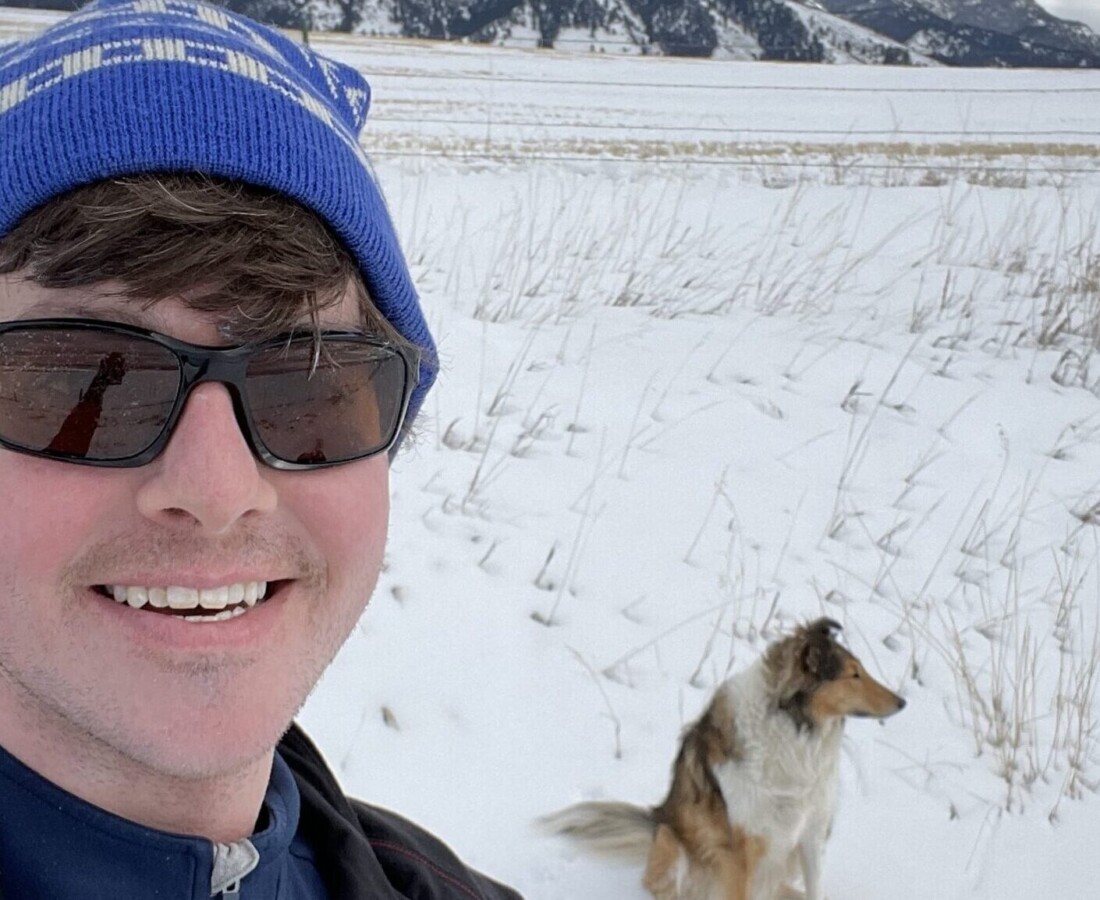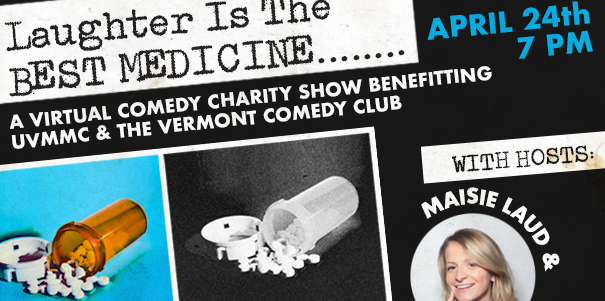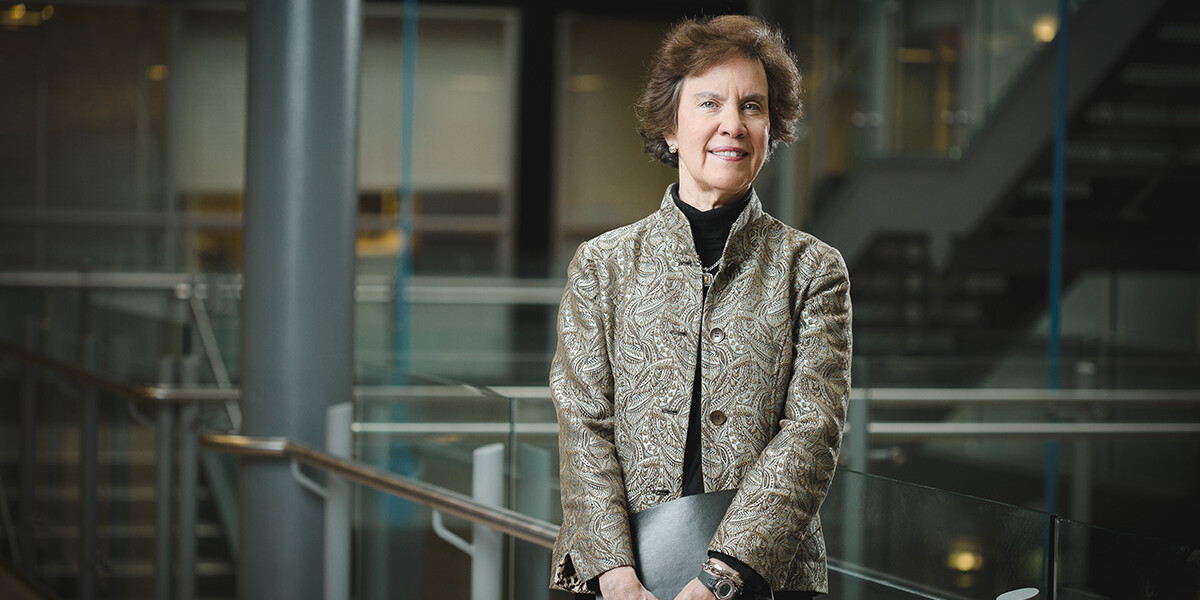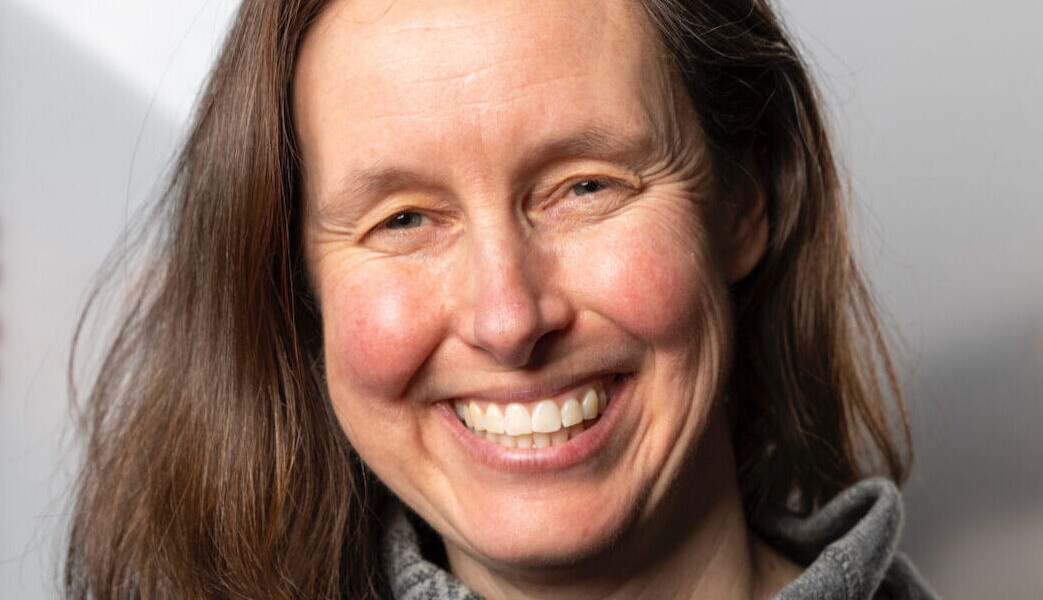Many pre-med students get their bachelor’s degrees in biological sciences. However, nearly as many major in a non-science field and often complete a post-bacc program to prepare for medical school, according to the Association of American Medical Colleges. If you have an English, art, psychology, or other non-biological science undergrad degree, that’s good news.
Andrew Scherffius is one of those students. He majored in philosophy in college and caught up on the required pre-med courses through UVM’s Post-Bacc Pre-Medical program before applying to med school. In this post, Scherffius shares the benefits of following this path and his tips for success if you are considering a career in medicine as a non-traditional student.
Find Out if Medical School is Right for You in a Post-Bacc Program
Scherffius chose UVM for his post-bacc work because of the flexibility to take courses outside the core curriculum. That and the length of the program helped him decide if medical school was the right path.
“The post-bacc curriculum is rigorous, but it’s also flexible. It gives you opportunities to check in with yourself and ask important questions like, “Do I enjoy my courses? Am I inspired by the people I’m meeting? Should I continue to pursue becoming a doctor?’ In my case, whenever I took a step back, it reaffirmed my decision, ‘Yes, this is what I want to be doing.'”
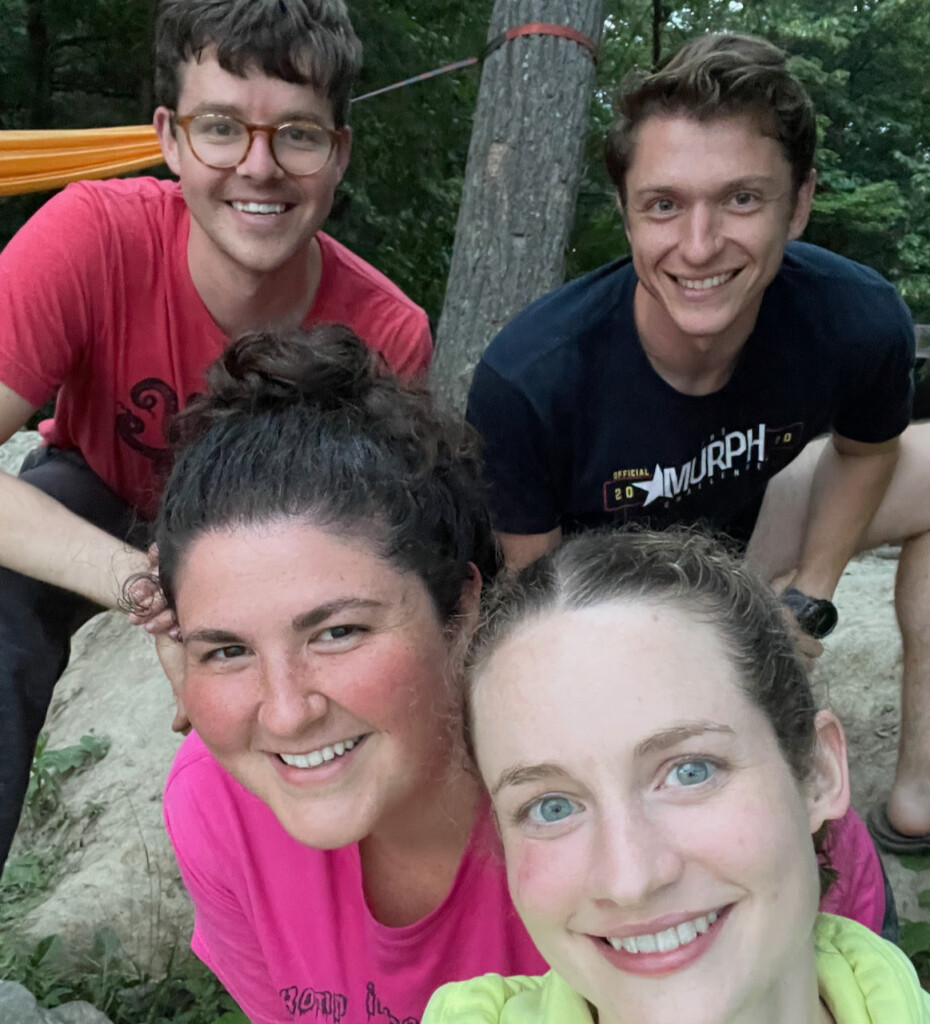
If your academic background is outside the sciences, or if you never considered a career in medicine or other professional paths until after graduating and trying a different career, the program gives you space to explore your new interests, Scherffius says. Of all the students he’s met at UVM through the post-bacc program, Scherffius has yet to meet anyone who regretted enrolling.
“I think that says a lot about UVM as a program and about the post-bacc pathway in general,” Scherffius said. “It’s not just about the courses… post-bacc programs attract people who have already taken significant mental and emotional steps towards a new career, and they tend to embrace opportunities to explore their strengths and weaknesses.”
Make New Connections to Strengthen Your Pre-Med Experience
Another way to confirm that you’re on the right path is to find volunteer or paid opportunities in the medical field. Medical work will also help you stand out if you decide to apply to medical school.
While living in Montreal, Scherffius completed UVM’s post-bacc program online, volunteered as a way finder at a hospital, and volunteered at another program in a different hospital preventing hospital-induced dementia among geriatric patients; all during the pandemic.
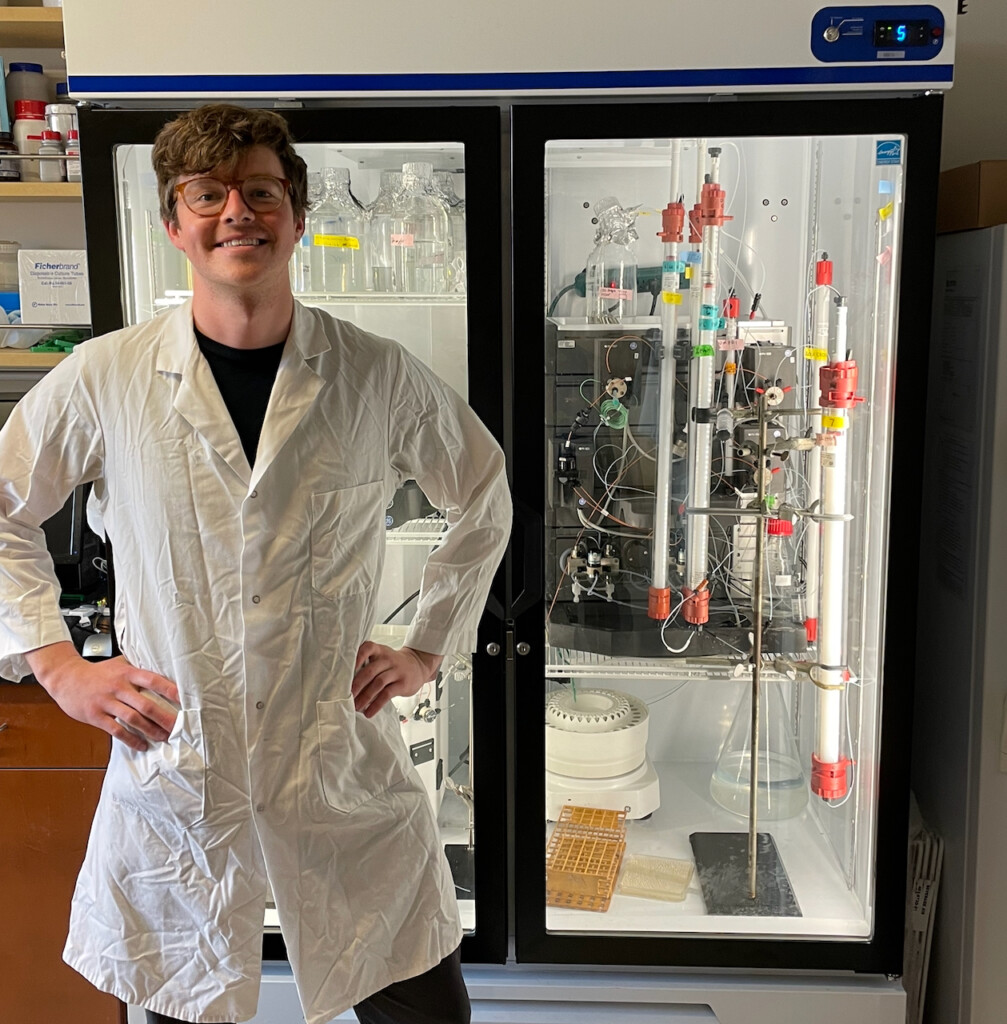
“While my classes confirmed my interest in science, volunteering experiences got me interested in patient-care. Meeting patients, hearing their stories, and observing health professionals in their day-to-day roles was essential,” Scherffius said, “because ultimately that’s what I’m signing up for as a doctor. Volunteering was yet another opportunity to step back and make sure this is what I wanted for my future.”
After completing the post-bacc program and while preparing to take the MCAT, Scherffius found a job at a microbiology lab back in his hometown, at Montana State University.
“I’m learning how research in the basic sciences takes shape, and how, in some instances, that research gets translated into medicine. A few years ago, I never would have imagined myself working at a lab bench. But I’ve found it’s an environment I also really enjoy,” Scherffius said.
He found many of his volunteer, shadowing, and job opportunities through cold calling and networking.
“Opportunities stack on top of each other, and if you open one door, it can open ten doors,” Scherffius reflected. “If you are an EMT, or volunteering with the Red Cross, or doing elder care work in an assisted living facility, you’ll get to talking with your colleagues, and you’ll learn about some great opportunity you’ve never heard of. Keep asking, and eventually doors will open. “
Scherffius doesn’t know what medical field he wants to specialize in yet, and that’s intentional.
“From what I’ve heard, a good deal of medical students wind up practicing in a specialty they didn’t consider practicing when they first matriculated,” Scherffius said. “I’ve taken that as license to try all the specialties I can, whether through volunteering, shadowing, or just chatting with doctors.”
Hear from another Post-Bacc Pre-Med Alumnus on how to find patient care experience.
How To Decide Where to Apply to Medical School
A non-biological sciences undergraduate degree can have advantages when applying to medical school. A December 2018 study published in the Journal Medical Education found that medical students with premedical backgrounds in social sciences may be more effective at communicating with patients.
As Scherffius prepares his applications, one criteria he’s considering as he chooses where to apply is whether medical schools incorporate the medical humanities into their curriculum. A list of student clubs and past student research projects can also be useful resources when deciding where to apply.
Other factors to consider? Your test scores, geographical preferences, school missions, networks of support like friends and family, and whether your post-bacc program has a linkage agreement with a medical school, like the post-bacc program at UVM does with the Larner College of Medicine. “All of these factors will help you determine where to apply.”
Tips for Success in a Post-Bacc Pre Med Program
TLDR? If you’re considering a post-bacc pre-med program, here are some tips for success.
- Use time in a post-bacc program to find out if pre-med is the right path for you and place equal value on the new skills you’ll learn along the way.
- Choose a program, like the one at UVM, that allows you the flexibility to take courses that interest you outside of the core curriculum, so you can decide what you like and don’t like.
- Make cold calls, ask medical professionals you know, and work your existing connections to find paid or volunteer opportunities in the medical field during and after your post-bacc program.
- Even if you have a hunch you want to specialize in one field, don’t commit to one specialty until you’ve explored other areas.
- Apply to medical schools that align with your previous undergrad experience and MCAT scores, and take advantage of potential linkage agreements with your post-bacc program.

